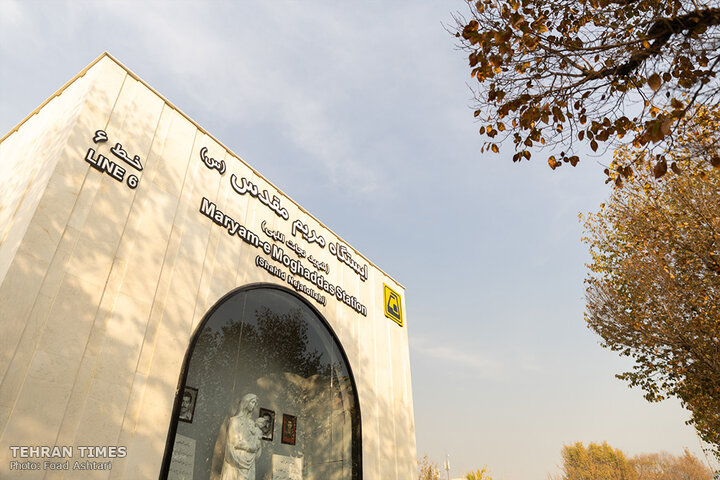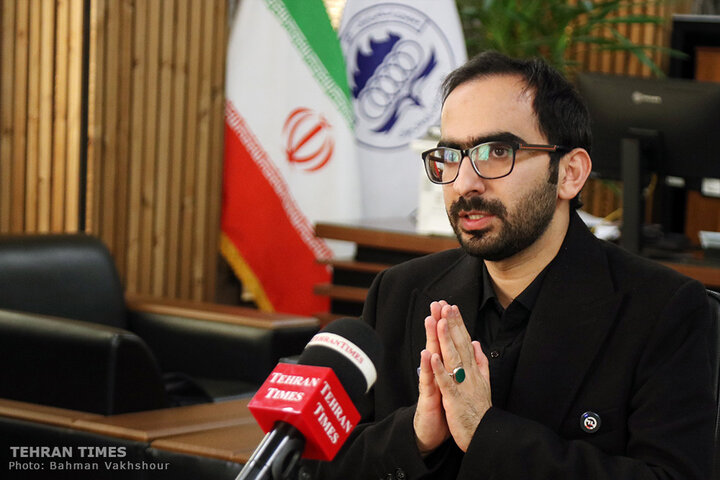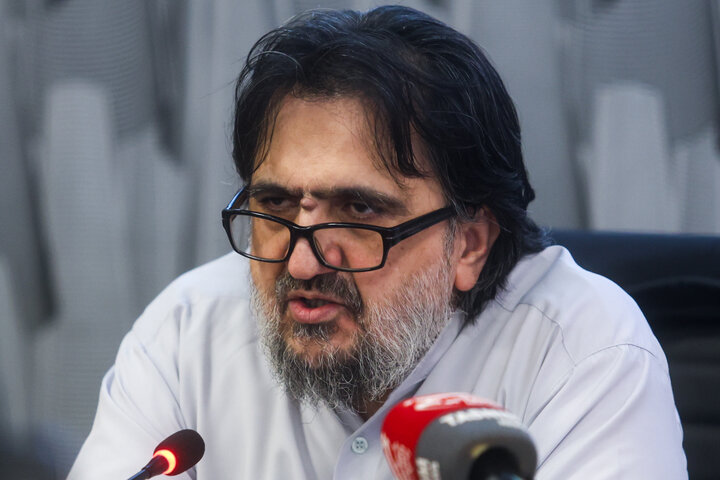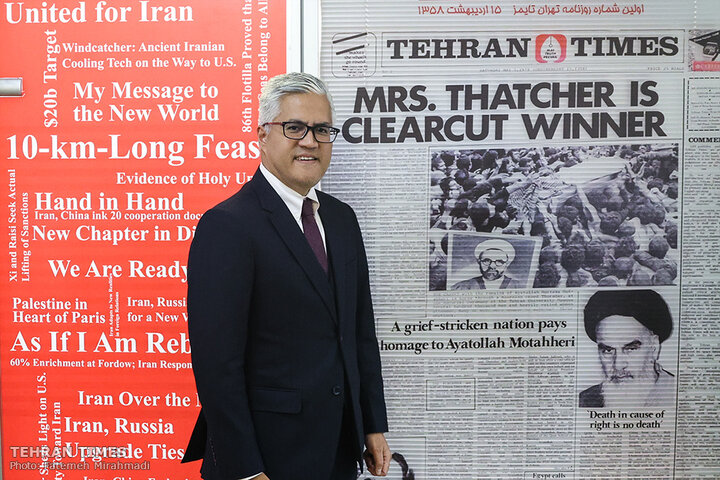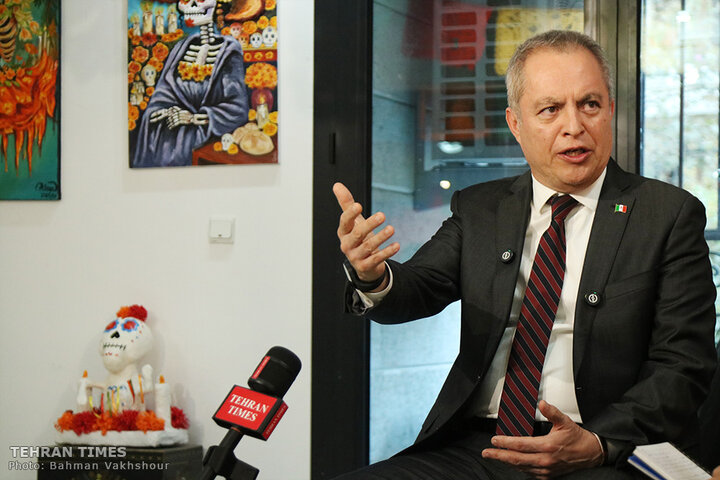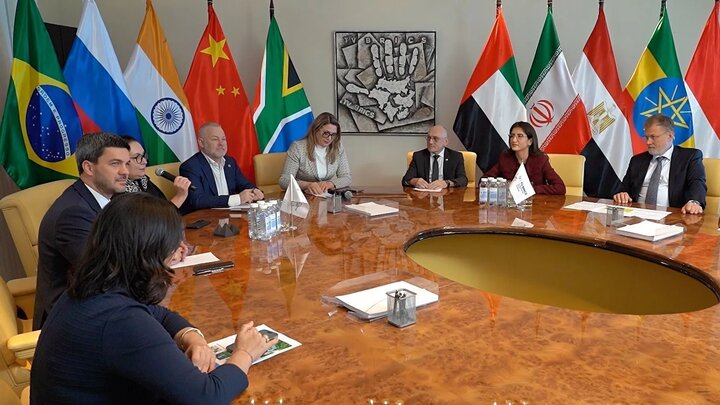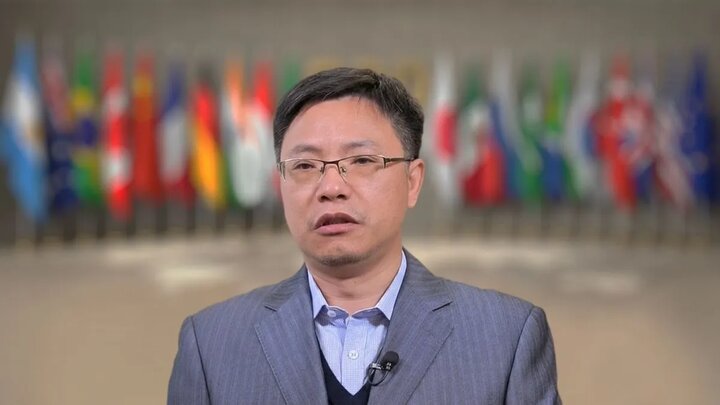-
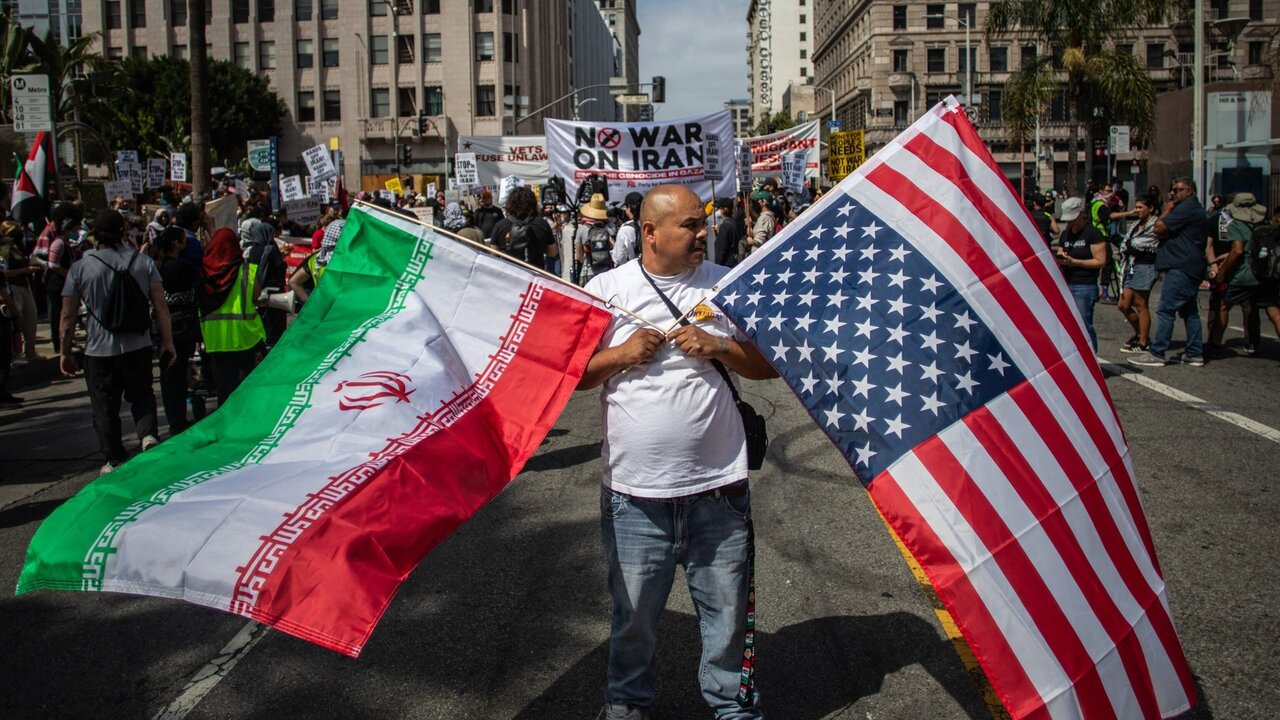 2025-12-02 22:09
2025-12-02 22:09
By Mona Hojat Ansari
How the Iran-US mediator obsession sidelines what actually matters
The real barrier to diplomacy isn't that Tehran and Washington can't talk —it’s that Washington insists on dictating all terms
TEHRAN – Hopes for a renewed diplomatic breakthrough between Iran and the U.S. have lingered ever since their last round of talks was shattered in June by Israeli and American airstrikes—an unprecedented bombing campaign targeting Iranian nuclear, civilian, and military sites that killed approximately 1,100 people and raised serious questions about Washington’s choice to bomb a country it was negotiating with.
-
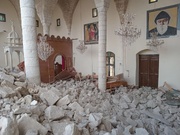
By Sondoss Al Asaad
Sanctified semantics: Lebanon’s risky drift into the ‘Abrahamic’ politics
BEIRUT—President Joseph Aoun’s description of Lebanon as a place where “all the Children of Abraham can meet” was portrayed as a gesture of coexistence during his address to Pope Leo XIV.
-
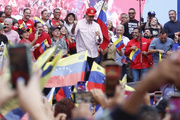
By staff writer
Venezuelan voices vs. America’s cannons
TEHRAN – Venezuelans took to the streets in Caracas and other cities this week to protest escalating U.S. military pressure. The demonstrations follow the continued presence of the USS Gerald R. Ford carrier strike group in the Caribbean and thousands of U.S. troops in the region. The U.S. has also carried out more than 20 strikes on maritime targets in the Caribbean and Pacific since early September, killing over 80 people, actions that Caracas says go beyond anti-drug operations and threaten Venezuelan sovereignty.
-
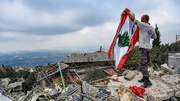
By Fatemeh Kavand
Iran, Lebanon, and the fog of West’s psychological warfare
The recent remarks by Lebanon’s foreign minister about “Iranian interference” have triggered a wave of reactions across the region’s political landscape.
-
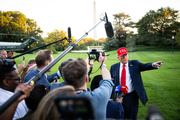
By Patricia Esami-Lubba
Trump’s Africa posture is less about human rights though more about power politics
ABUJA – When Donald Trump turns his attention to Africa, it is rarely for reasons African policymakers recognize as grounded in fact or consistent principle. His latest escalation of tensions with Nigeria and South Africa, framed as a moral crusade against human rights abuses, reflects a recurring pattern: selectively invoking the language of rights to justify punitive diplomacy that ultimately serves domestic politics more than international justice.
-
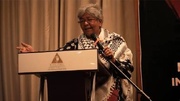
By Sahar Dadjoo
‘What is happening in Gaza is not collateral damage, it is policy’
Azra Sayeed says the pattern of attacks proves intent, not accident
TEHRAN — In a revealing and timely conversation, Azra Talat Sayeed, Secretary-General of the International League of Peoples’ Struggle (ILPS) and one of the lead conveners of the International People’s Tribunal on Palestine (IPT), discusses the tribunal held on November 23–24, 2025, in Barcelona, Spain.
Politics
-
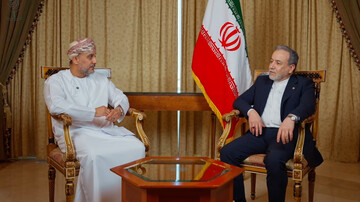
Araghchi says Iran was ‘very close’ to deal with US before June attacks
TEHRAN – Iranian Foreign Minister Abbas Araghchi said Tehran was very close to reaching an agreement with the United States during Omani-mediated talks held earlier this year, but Washington’s refusal to accept any of Iran’s many solutions torpedoed the process, and its subsequent attacks further eroded trust in the U.S. commitment to diplomacy.
-
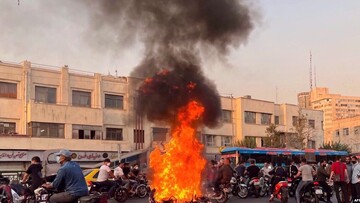
Tehran court orders U.S. to pay over $22 Billion in damages for inciting deadly riots
TEHRAN – A Tehran court has ordered the United States government to pay more than $22 billion in material, moral, and punitive damages for Washington’s involvement in the deadly riots that convulsed Iran in 2022.
-
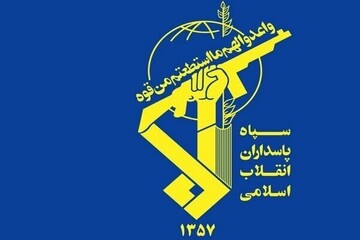
1,200 religious leaders from SE Iran condemn Australia’s blacklisting of IRGC
TEHRAN – More than 1,200 Friday prayer leaders, seminary teachers, elders, and tribal chiefs from both Sunni and Shia communities in Sistan and Baluchestan Province have voiced strong support for the Islamic Revolution Guard Corps (IRGC), denouncing Australia’s recent move to label the force a state sponsor of terrorism.
Sports
-
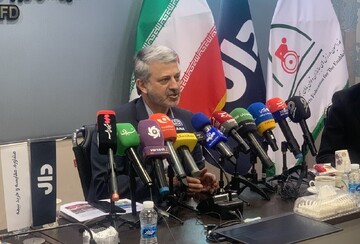
Asian Youth Para Games pave the way for the future: Koohpayehzadeh
TEHRAN – Jalil Koohpayehzadeh, head of Iran's Sports Federation for the Disabled, said the Asian Youth Para Games 2025 present an opportunity to identify talented athletes for the 2026 Asian Para Games and the 2028 Paralympic Games.
-
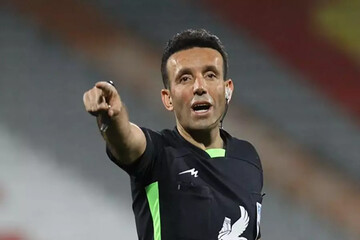
Vahid Kazemi selected for Tehran derby clash
TEHRAN – Vahid Kazemi will be the center referee for the Tehran derby between Persepolis and Esteghlal.
-
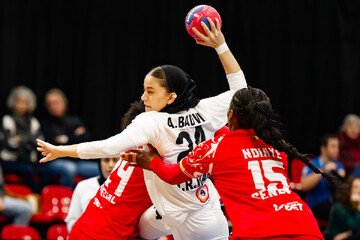
Iran suffer third successive loss at IHF Women's World Championship 2025
TEHRAN – Iran lost to Senegal 30-21 at the 27th IHF Women's World Championship 2025 Senegal Monday night.
Culture
-
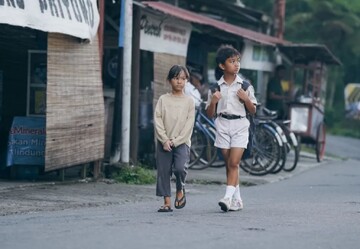
Indonesian remake of "Children of Heaven" set for 2026 release
TEHRAN- MD Pictures, one of Indonesia’s leading production companies, has announced its plans to release a remake of the acclaimed 1997 Iranian film “Children of Heaven”. Directed by renowned filmmaker Hanung Bramantyo, the new version is scheduled for release in 2026 and aims to bring the heartfelt story of sibling resilience to Indonesian screens, set against the backdrop of the city of Semarang.
-
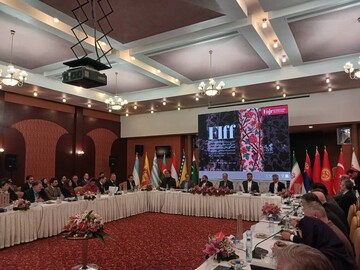
Iran, global partners unite to foster cinematic collaboration at Shiraz conference
TEHRAN- An international conference on cinematic cooperation was held Monday evening on the sidelines of the 43rd Fajr International Film Festival (FIFF) with the participation of Iran's Minister of Culture and Islamic Guidance, Seyyed Abbas Salehi.
-
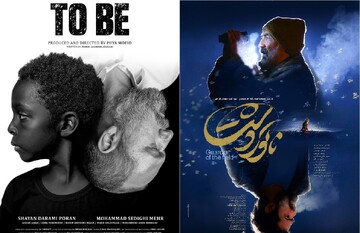
Five Iranian movies will compete in 16th Baku International Film Festival
TEHRAN – Five films from Iran will compete in the 16th Baku International Film Festival, set to be held in Azerbaijan from December 5 to 9.
Economy
-
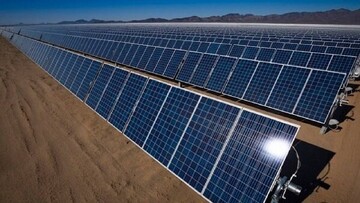
Iran’s renewable capacity exceeds 3,000 MW as govt. accelerates solar expansion
TEHRAN – Iran’s renewable power capacity has surpassed 3,000 megawatts following the addition of 445 megawatts of new clean-energy generation, the deputy energy minister said at an inauguration ceremony for recently completed solar projects.
-
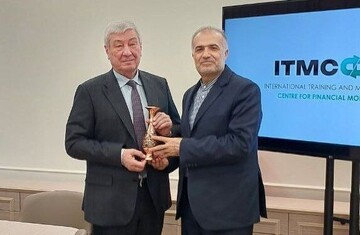
Iran, Russia discuss stronger cooperation against money laundering
TEHRAN – Iran and Russia have held talks on expanding bilateral and multilateral cooperation to combat money laundering and terrorism financing, according to the Iranian Embassy in Moscow.
-
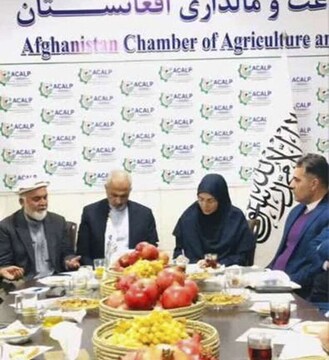
Iran-Afghanistan co-op in animal quarantine, phytosanitary being strengthened
TEHRAN- The head of Iran's Plant Protection Organization announced the enhancement of cooperation between Iran and Afghanistan in the areas of livestock quarantine and phytosanitary.
Society
-

National campaign on healthy diet to be held
TEHRAN – The national campaign to promote healthy eating habits will kick off on December 6 and will run for over two weeks.
-
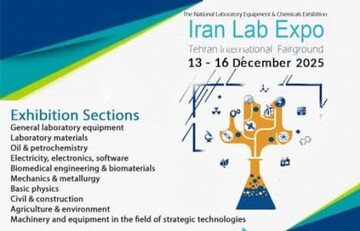
Tehran to play host to 13th Iran Lab Expo
TEHRAN –The 13th exhibition of Iranian-made laboratory equipment and materials called ‘IRAN LAB EXPO’ is scheduled to be held from December 13 to 16 at Tehran Permanent International Fairgrounds.
-
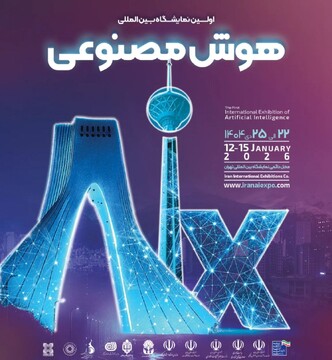
First intl. AI exhibition slated for January
TEHRAN – Tehran will play host to the first international artificial intelligence (AI) exhibition, known as AIX Expo, which is scheduled to be held from January 12 to 15, 2026, at Tehran Permanent International Fairgrounds.
Tourism
-
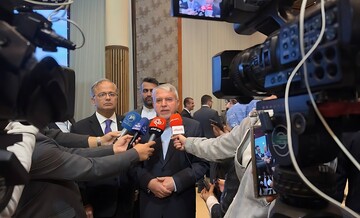
Tehran signals renewed regional engagement as ECO Cooperation enters ‘new horizon’
TEHRAN - Iran’s Minister of Cultural Heritage, Tourism and Handicrafts has said constructive dialogue with member states of the Economic Cooperation Organization (ECO) has opened “a new horizon” for regional collaboration, marking what he described as a pivotal moment for cultural, tourism and economic synergy between the member states.
-

Yazd hosts sign-language workshop to support accessible tourism
TEHRAN – A sign-language training workshop for staff of tourism facilities was held in Yazd on Tuesday to promote accessible tourism in the UNESCO-listed city, organizers said.
-

Cultural heritage minister: Persepolis has not suffered any deformation or damage
TEHRAN--Based on technical reports and periodic assessments of Persepolis (also known as Takht-e Jamshid) in Fars province, no new or worrying events have been observed so far regarding the deformation of structures or damage related to subsidence, Minister of Cultural Heritage Seyyed Reza Salehi-Amiri has said.
International
-

Sanctified semantics: Lebanon’s risky drift into the ‘Abrahamic’ politics
BEIRUT—President Joseph Aoun’s description of Lebanon as a place where “all the Children of Abraham can meet” was portrayed as a gesture of coexistence during his address to Pope Leo XIV.
-

Venezuelan voices vs. America’s cannons
TEHRAN – Venezuelans took to the streets in Caracas and other cities this week to protest escalating U.S. military pressure. The demonstrations follow the continued presence of the USS Gerald R. Ford carrier strike group in the Caribbean and thousands of U.S. troops in the region. The U.S. has also carried out more than 20 strikes on maritime targets in the Caribbean and Pacific since early September, killing over 80 people, actions that Caracas says go beyond anti-drug operations and threaten Venezuelan sovereignty.
-

Trump’s Africa posture is less about human rights though more about power politics
ABUJA – When Donald Trump turns his attention to Africa, it is rarely for reasons African policymakers recognize as grounded in fact or consistent principle. His latest escalation of tensions with Nigeria and South Africa, framed as a moral crusade against human rights abuses, reflects a recurring pattern: selectively invoking the language of rights to justify punitive diplomacy that ultimately serves domestic politics more than international justice.
Video Comment
-

Holy Mary Metro Station marks interfaith unity in Tehran
-

Academics analyze social dimensions of Resistance in Tehran conference
-
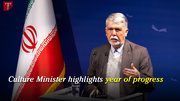
Culture minister highlights year of progress in arts, global image enhancement
-
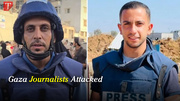
Gazan Journalists attacked by Israel
-
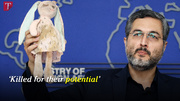
Brother of Iranian scientist murdered in Israeli strike speaks out
Most Viewed
-
Bully politics: The American style
-
Iran hosting SCO joint anti-terror drills
-
Iran, Pakistan ink several MOUs in Karachi intl. food, agriculture expo
-
Israel, not Russia, is damaging Iran-Poland ties
-
Indonesia aims to expand economic cooperation with Iran, envoy says
-
What Iran’s foreign ministry spokesman said at his weekly briefing
-
Eswatini-flagged vessel smuggling fuel seized in Persian Gulf
-
Top petchem companies to gather in Kish for Iran Petrochem 2026
-
Yemen: Renewed mandate for liberation amid escalating threats
-
Could the Pope’s Lebanon visit temper Israeli threats and mend political divisions?
-
Iran highlights itself as safe, family-friendly destination at QTM 2025
-
Iran’s U17 elimination signals a deeper football crisis
-
From accord to atrocity: Gaza human cost mounts under broken truce
-
Tehran serves as the venue for regional consultations
-
Palestinian journalist details sexual assault and torture at Sde Teiman detention center
